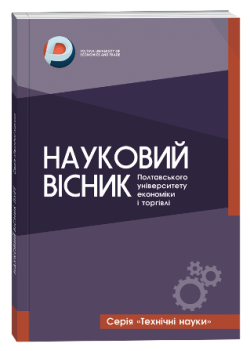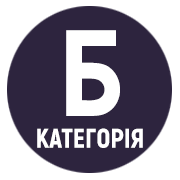ПЕРЕВАГИ ТА НЕДОЛІКИ ЗАСТОСУВАННЯ ШТУЧНОГО ІНТЕЛЕКТУ В НАУКОВИХ ДОСЛІДЖЕННЯХ
Анотація
Метою дослідження є визначення переваг і недоліків використання штучного інтелекту у наукових дослідженнях. Методика дослідження. У статті використано метод аналізу та синтезу сучасних наукових публікацій, що висвітлюють питання впровадження ШІ в наукову діяльність. Проведено огляд літератури, аналіз інструментів ШІ для автоматизованого пошуку та аналізу наукової інформації, а також розглянуто етичні аспекти використання ШІ. Результати. Дослідження показало, що ШІ значно покращує ефективність наукових досліджень, дозволяючи аналізувати великі обсяги даних, підвищувати точність та надійність результатів, а також оптимізувати дослідницький процес. Водночас виявлено суттєві недоліки, такі як ризики помилкових рішень, питання етики та доброчесності, застарілість даних і обмежене розуміння контексту.
Посилання
2. Chaudhry, M., & Kazim, E. (2022). Artificial Intelligence in Education: a high-level academic and industry note. Original Research, 2 (Pp. 157–165).
3. Duggal, N. Advantages and Disadvantages of Artificial Intelligence. 2024. Retrieved from https://www.simplilearn.com/advantages-and-disadvantages-of-artificial-intelligence-article
4. EU. EU Artificial Intelligence Act. Retrieved from https://artificialintelligenceact.eu/
5. Strilets, V., Frolov, S., Datsenko, V., Tymoshenko, O., & Yatsko, M. (2022). State support for the digitalization of SMEs in European countries. Problems and Perspectives in Management, 20 (4) (Рр. 290–305). doi:10.21511/ppm.20(4).2022.22
6. Svab, I., Klemenc-Ketis, Z., & Zupanic, S. (2023). New challenges in scientific publications: referencing, artificial intelligence and Chat. Zdr Varst, 62(3) (Рр. 109–112).
7. UNESCO. Artificial intelligence in education. UNESCO. 2019. Retrieved from https://en.unesco.org/artificialintelligence/education.
8. Use of artificial intelligence when writing scientific papers. Retrieved from https://spapers.eu/uk/blog/usingartificial-intelligence-while-writing-a-scientific-papers [in Ukrainian].
9. Dmytriieva, O. I., & Yefymenko, O. V. (2023). Osoblyvosti vprovadzhennia shtuchnoho intelektu v suchasnu vyshchu osvitu [Peculiarities of introduction of artificial intelligence in modern higher education]. Tekhnolohii dobrochesnoho vykorystannia shtuchnoho intelektu u sferi osvity ta nauky– Technologies of honest use of artificial intelligence in the field of education and science : materials of the All-Ukrainian scientific and pedagogical professional development, July 31 – September 10, Odesa: "Helvetyka" Publishing House, 2023. 276 p. P. 89–92.
10. Inquiries from Google users on the concepts of GPT and AI. Retrieved from https://trends.google.com.ua/trends/explore?date=today%205-y&q=gpt,AI
11. Strilets, V. Iu., Materynko, V. O., & Sokil, A. A. (2023). Poserednytski mekhanizmy rekonfihuratsii mozhlyvostei tsyfrovykh platform dlia stvorennia innovatsiinykh biznes-modelei MSP [Intermediary mechanisms for reconfiguring the capabilities of digital platforms to create innovative business models for SMEs]. Infrastruktura rynku – Market infrastructure, 73. (Pp. 101–106). Retrieved from http://www.market-infr.od.ua/journals/2023/73_2023/20.pdf [in Ukrainian].
12. Artificial intelligence in the field of scientific publishing. AkademProstir. 2024. Retrieved from https://www.akademprostir.com/l/shtuchnij-intelekt-u-naukovij-publikatsijnij-sferi/ [in Ukrainian].


